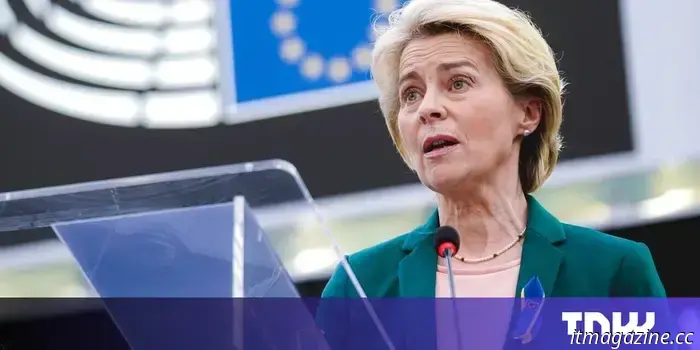
The industry group warns that Europe needs to be realistic about tech sovereignty while remaining open.
As Europe aims for technological sovereignty, an advocate for open-source has a cautionary note: remember the importance of global collaboration. Amanda Brock, CEO of OpenUK, shared with TNW that the EU must “face reality” regarding the compromises involved in pursuing independence. According to Brock, tech policymakers need to move past “schoolyard politics” and instead “nurture international collaboration while addressing the needs of their citizens.”
Her remarks come after Bulgarian lawmaker Eva Maydell's speech in Brussels, where she called for Europe to “sober up” in its drive for tech autonomy.
In her address, Maydell stated, “We need to have a very clear outline plan which, first and foremost, assesses where our strengths are, our dependencies, and where we need to collaborate.”
In an effort to decrease reliance on major global tech companies, European institutions have intensified initiatives to develop domestic expertise in fields such as AI, cloud computing, and semiconductors. This urgency has heightened due to escalating tensions with the US and China.
However, Brock cautions that Europe should be mindful of the trade-offs associated with tech sovereignty. She highlights open-source software, which is available for anyone to use, modify, and share, emphasizing that it fundamentally relies on international cooperation.
“Each time there’s discussion of ‘sovereignty’ from the EU, shortly after we hear ‘open-source’,” she remarked. “These two notions are in direct conflict, as open-source fundamentally embodies global collaboration.”
Brock encourages Europe to invest in technological infrastructure and talent to enhance the development of technologies like AI, while remaining receptive to cooperation with the global community. “No one claimed it would be simple,” she noted.
Andreas Riegler, general partner at APEX Ventures, concurs that Europe should maintain its embrace of international collaboration. He cautions against the temptation to directly compete with the US and China in areas such as cloud infrastructure or foundational AI models.
“Europe must resist the urge to isolate itself and should instead integrate into global tech ecosystems where suitable,” he stated. “Failure to do so risks redundant efforts, a loss of talent, and a decrease in geopolitical influence in determining global standards.”
Europe’s tech sovereignty is set to be a significant topic at the TNW Conference, happening on June 19-20 in Amsterdam. Tickets for the event are now available — use the code TNWXMEDIA2025 at checkout for a 30% discount.
Other articles
 Kingdom Hearts: Missing Link has been cancelled, but there’s a positive aspect for fans.
Square Enix has halted the development of Kingdom Hearts: Missing Link, but assures that work on Kingdom Hearts 4 is progressing smoothly.
Kingdom Hearts: Missing Link has been cancelled, but there’s a positive aspect for fans.
Square Enix has halted the development of Kingdom Hearts: Missing Link, but assures that work on Kingdom Hearts 4 is progressing smoothly.
 In an emotional trailer, Superman wrestles with his decisions and their consequences.
In the heartfelt trailer for James Gunn's Superman, the Man of Steel is compelled to confront the repercussions of his choices.
In an emotional trailer, Superman wrestles with his decisions and their consequences.
In the heartfelt trailer for James Gunn's Superman, the Man of Steel is compelled to confront the repercussions of his choices.
 Review of the Apple Pro Display XDR Monitor: The top Mac monitor comes with a hefty price tag.
The Apple Pro Display XDR is still the premier monitor for Mac users; however, its exorbitant cost limits it to only the most professional users.
Review of the Apple Pro Display XDR Monitor: The top Mac monitor comes with a hefty price tag.
The Apple Pro Display XDR is still the premier monitor for Mac users; however, its exorbitant cost limits it to only the most professional users.
 5 remarkable achievements of DeepMind's new self-evolving AI coding agent
AlphaEvolve enhances large language models (LLMs) such as Gemini in their ability to tackle intricate computing and mathematical challenges.
5 remarkable achievements of DeepMind's new self-evolving AI coding agent
AlphaEvolve enhances large language models (LLMs) such as Gemini in their ability to tackle intricate computing and mathematical challenges.
The industry group warns that Europe needs to be realistic about tech sovereignty while remaining open.
As Europe advances towards technological independence, an open-source proponent cautions against overlooking the importance of global collaboration.
